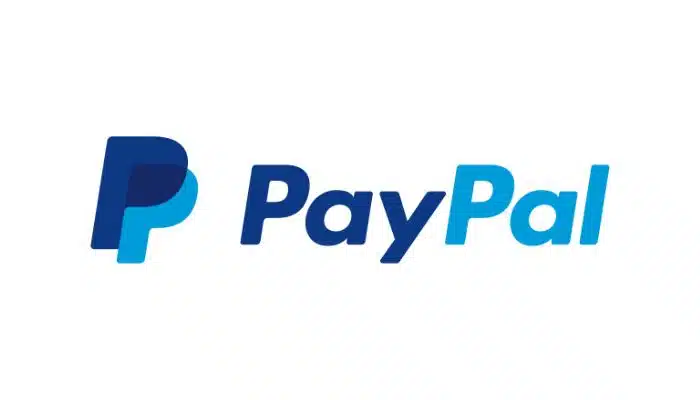The choice between Stripe vs PayPal, two of the most popular payment gateways, is a relevant issue for those looking for an online payment processing solution. Both offer similar functionalities, but differ in terms of cost, ease of use, global reach and specific features.
The comparison between Stripe and PayPal is crucial for merchants who want to select the gateway that best suits their needs and those of their customers.
In this article we will break down important points such as the comparison of these two payment gateways, in terms of payment methods, prices, security, customer service, availability to process payments and the time it takes to process them. If you want to know more, read to the end!
What do Stripe and Paypal do?
PayPal vs Stripe are payment gateways used by merchants to process online transactions. They perform similar functions, but have distinctive differences:
Stripe:
- It offers a flexible API and development tools to customize the integration of payments into applications and websites.
- It is known for its simplicity and for being popular with developers, as it allows easy integration with custom software.
- It allows merchants to receive online payments via credit and debit cards, as well as subscription or recurring payments.
- It offers customization options and detailed configuration.
PayPal:
- It offers a variety of payment options, from bank transfers and credit cards to PayPal balance payments.
- It is known to be widely used and recognized worldwide, with an easy-to-use interface for buyers.
- It provides payment tools for websites and mobile applications, allowing shoppers to pay quickly and securely.
- It provides an additional layer of security to protect the buyer’s information.
Independent vs. incorporated company
The choice between an independent business (such as a sole proprietorship) and an incorporated business (such as a corporation or limited liability company) involves significant differences in terms of legal structure, liability, taxation and stability.
Independent company:
- Simplicity: It is easier to set up and operate. It is usually managed by a single individual.
- Personal liability: The owner is personally liable for the debts and obligations of the company. Your personal assets could be at risk.
- Taxation: Income is taxed as personal income. There is no legal separation between the company and the owner, which may limit certain tax benefits.
- Less financial stability: Generally, it has less access to external financing or investment.
Incorporated company:
- Liability protection: The liability of the owners is limited to the capital invested in the company. Your personal assets are protected in most cases.
- Tax advantages: There may be tax benefits, such as lower tax rates for corporations.
- Access to financing: Generally, it has access to more financing options and is more attractive to potential investors.
- Stability and credibility: A more formal structure can generate greater trust among customers, suppliers and business partners.
What kind of companies can use these payment gateways?
Both Stripe and PayPal are flexible and adapt to a wide range of businesses and business models:
1. Stripe
Suitable for a variety of companies, from startups to established companies. It is particularly popular among online businesses, subscription platforms, e-commerce, mobile applications and subscription-based services.
2. PayPal
Widely accepted and used around the world, PayPal is suitable for most online businesses, including:
- Small companies.
- Individual vendors.
- E-commerce.
- Online stores.
- Service providers.
- Non-profit organizations and more established businesses that wish to offer a variety of payment options to their customers.
Stripe vs Paypal payment methods
Stripe and PayPal offer flexible payment methods for merchants:
Stripe
- Credit and Debit Cards: Stripe allows you to process payments with a wide range of cards, including Visa, Mastercard, American Express and more.
- Online payments: Offers solutions for online payments directly through an online store or website.
- Recurring subscriptions: Allows you to easily set up and manage recurring payments or subscriptions for subscription-based business models.
PayPal
- Credit and debit cards: Allows buyers to pay directly with credit or debit cards, even if they do not have a PayPal account.
- PayPal Account: Allows customers to pay directly with funds from their PayPal account.
- Payments via email or links: Provides options to send payment requests via email, links or QR codes.
Both gateways provide secure and easy-to-use payment gateways tailored to the needs of merchants and their customers.
Stripe vs PayPal Pricing and Fees
Stripe and PayPal prices and fees may vary by region, transaction type and other factors. Here is a general summary:
Stripe
- Transaction fee: In the U.S. stripe standard transaction fees is 2.9% + $0.30 USD for credit card payments.
- International transaction fees: Stripe commissions may vary for international transactions and foreign currency conversions.
- No monthly or setup fees: Stripe does not charge monthly or setup fees.
PayPal
- Transaction fee: In the U.S., the standard paypal fees per transaction is 2.9% + $0.30 USD.
- International Fees: Additional fees may apply for international transactions and foreign currency conversions.
- No monthly fees: PayPal does not usually charge monthly fees, but there may be additional fees for certain services.
Both platforms offer clear and competitive rate options, but it is important to review the updated rates on each provider’s website and consider your specific business needs before making a decision.
Security of these payment gateways
Both Stripe and PayPal are recognized for their focus on online transaction security:
Stripe
- Compliance with security standards: Complies with the highest security standards in the industry (PCI DSS Level 1), which guarantees the protection of customer information.
- Data encryption: Uses SSL (Secure Sockets Layer) encryption to secure transactions and protect confidential information.
- Anti-fraud tools: Offers advanced fraud detection and risk prevention tools to protect merchants and customers.
PayPal
- Buyer/seller protection: Offers protection to buyers and sellers, ensuring greater security in transactions.
- Data security: Uses advanced encryption and security protocols to protect user information and transactions.
- Fraud detection: It has fraud detection tools and constant monitoring to prevent fraudulent activities.
Stripe vs Paypal customer service
Both Stripe and PayPal offer customer support, although there are differences in their contact methods and service levels:
Stripe:
- Technical support: Offers technical support through its online help center, where you can find guides, documentation and answers to frequently asked questions.
- Email: Stripe offers email support, although access may be limited depending on the type of account or subscription.
- No direct telephone support: Does not offer direct telephone support for all users, which can be a limitation in direct communication.
PayPal:
- Extensive support options: Provides a wide range of support channels, including online help center, live chat and direct telephone support.
- Customer Support: Their customer support is known for being accessible and offering quick assistance to users with problems or queries.
- Variety of languages: Offers support in several languages and has customer service representatives around the world.
Availability to receive payments
Both payment gateways, Stripe and PayPal, offer payment processing services in a wide range of countries and regions, although with some differences in their global availability:
Stripe
- It is available in many countries and supports payments in a wide variety of currencies. However, exact availability may vary by region.
- It offers support for different payment methods and currencies, allowing merchants to conduct international transactions with relative ease.
PayPal
- Widely accepted and used in more than 200 countries and regions worldwide.
- It is known for its extensive global network, which allows merchants to receive payments and transfer funds in various currencies and through various payment methods.
Stripe vs Paypal payment processing time
The time required to process a payment through Stripe or PayPal may vary depending on several factors, including region, payment method and specific account settings. However, in general terms:
Stripe
- Stripe generally processes payments in real time. This means that once a transaction is completed, authorization and settlement of funds usually occurs instantaneously.
- Transaction funds are generally deposited into the merchant’s bank account within 2 to 7 business days, depending on the region.
PayPal
- PayPal also processes payments in real time, which means that transactions are authorized and settled instantly.
- Funds are usually deposited into the merchant’s PayPal account immediately and can be transferred to a bank account within 1-3 business days, although the exact time may vary.
Customization
In terms of customization and branding, both Stripe and PayPal offer a degree of flexibility:
Stripe:
- It enables deeper integration into an online store’s payment flow, giving merchants more control over the look and feel of the checkout experience.
- It offers options to customize payment forms and payment flow, allowing merchants to incorporate their brand and personalize the customer experience.
PayPal:
- While it offers some degree of customization, the ability to tailor the payment experience may be more limited compared to Stripe.
- Through its service, PayPal Checkout, it offers some options to customize payment buttons and forms, but full customization may be more restricted compared to Stripe.
Stripe vs Paypal which is better?
The choice between Stripe and PayPal depends largely on the specific needs of your business, as both payment gateways have their own strengths:
Stripe
- It offers greater flexibility and control over the payment experience, enabling deeper integration into an online store’s payment flow.
- It is popular with developers and businesses looking for more advanced customization, especially in subscription and recurring payment models.
PayPal
- It is widely known and accepted worldwide, which can generate greater confidence among customers.
- It offers quick and easy payment options, especially for customers who prefer to pay with their PayPal account.
The decision between Stripe and PayPal will depend on factors such as your specific business needs, customer preference, ease of use, integration with existing platforms and fees.
It is advisable to evaluate the specific services, considering the rates, user experience, customer service and integration capabilities that best suit your business needs.
Still not sure which payment gateway to choose? Our team is ready to help you. In Kiwop we have expert advice and we guide you to select the best option. In addition, our experienced development team can handle the integration seamlessly.



Leave a Reply